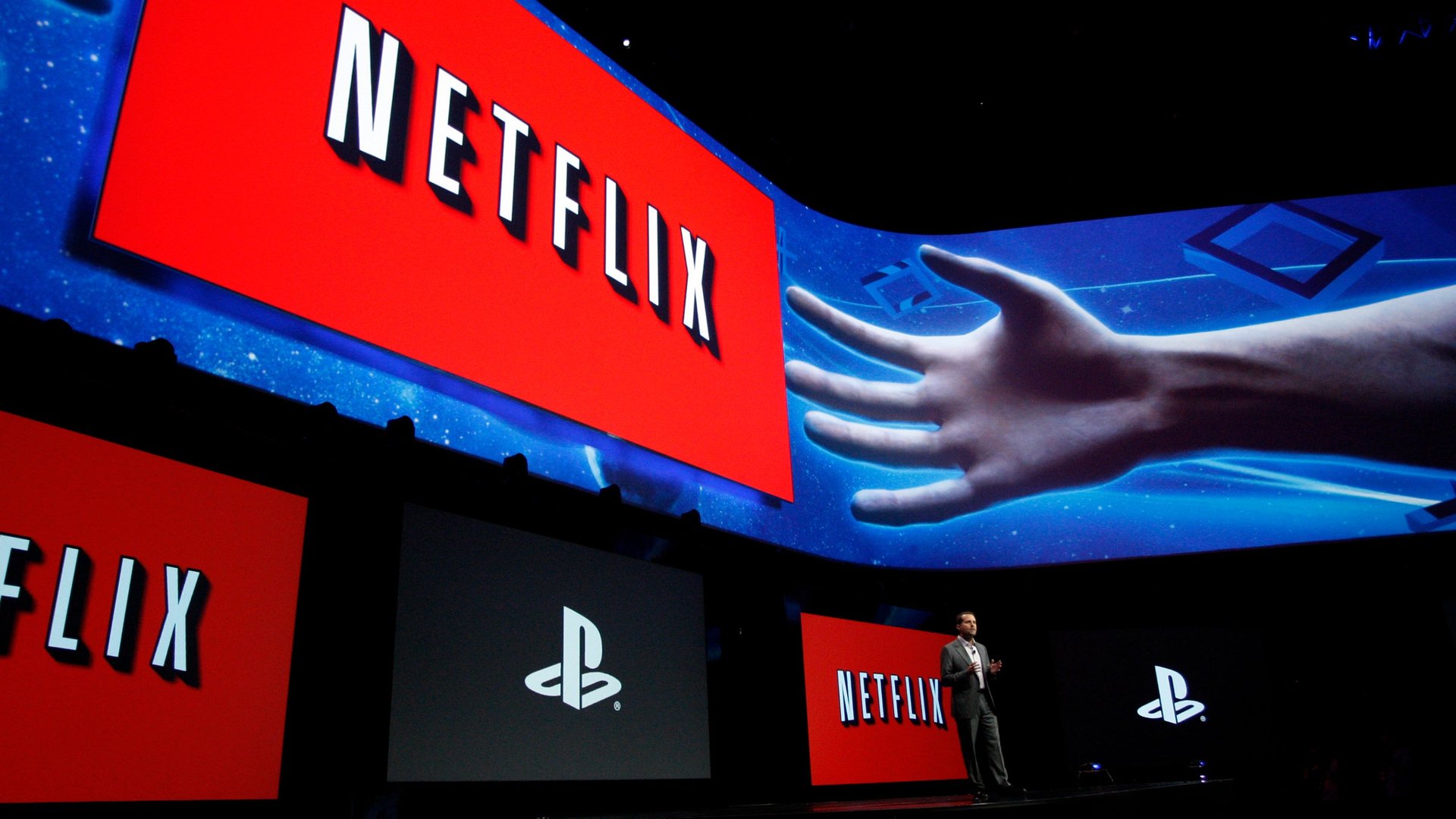Netflix is making both cable and internet television better
Not only is Netflix creating compelling original content worth watching on its streaming service, but the HBO-of-the-future is facilitating a similar revolution on the cable networks as well. Hoping to get more exclusive rights to shows that its subscribers value, Netflix has started investing in the type of stuff that appears on the traditional boob-tube first. It helped resurrect the AMC show The Killing, for example, because it knew that its audience would like more seasons of the serial crime drama, reports The Wall Street Journal’s Amol Sharma. In exchange for the cash, Netflix got exclusive streaming rights just three months after the season finale, which is a win-win for viewers (and for Netflix): Not only do fans of a pretty acclaimed show get more of it on cable, but Netflix subscribers also get a chance to watch a well done drama pretty soon after its release—all because it’s what viewers like you want. That’s pretty incredible considering how much junk populates the airwaves just to fill up time.


Not only is Netflix creating compelling original content worth watching on its streaming service, but the HBO-of-the-future is facilitating a similar revolution on the cable networks as well. Hoping to get more exclusive rights to shows that its subscribers value, Netflix has started investing in the type of stuff that appears on the traditional boob-tube first. It helped resurrect the AMC show The Killing, for example, because it knew that its audience would like more seasons of the serial crime drama, reports The Wall Street Journal’s Amol Sharma. In exchange for the cash, Netflix got exclusive streaming rights just three months after the season finale, which is a win-win for viewers (and for Netflix): Not only do fans of a pretty acclaimed show get more of it on cable, but Netflix subscribers also get a chance to watch a well done drama pretty soon after its release—all because it’s what viewers like you want. That’s pretty incredible considering how much junk populates the airwaves just to fill up time.
When people aren’t at the mercy of the TV Guide schedule, it turns out they seek out higher quality programming than when channel surfing. Since Netflix provides on-demand streaming content for people who will stop paying them money if good shows don’t show up, it means less fluff ends up on the service. Reality TV—the scourge of television programming—for example, doesn’t play well on Netflix. The service dropped a slew of A+E’s “unscripted fare” like Pawn Stars and Ice Road Truckers because when given the choice of what to watch on their own time, its subscribers didn’t binge on reality television.
That increased-quality trend is also reflected in the original series that Netflix has put out. So far, it has made two critically acclaimed shows and also revived a cult classic. Of course, not everything that gets tons of viewers will meet the standard. Hemlock Grove got terrible reviews, but apparently brought in more early viewers than the mega-hit House of Cards, according to Netflix chief content officer Ted Sarandos. But because of the business model, the original programming will only get better, as The Atlantic’s Derek Thomspon has argued. ”The company’s business decision to chase exclusive TV rights was not an act of charity for TV fans; it was a business decision,” he writes. Just buying up streaming rights to existent series wasn’t enough to continue growth. Rather, it needed to invest in its own shows—ones would hook subscribers so much that they keep paying for the service.
More remarkable, however, is how this model has changed the way television gets made in the traditional cable realm. The fees paid by Netflix (and services like it) for streaming rights make up a growing part of content owner’s revenues, as a separate Wall Street Journal chart explains. For individual channels the money from these streaming deals can dictate what succeeds. Beyond giving The Killing new lifeblood, Netflix paid $1 million per episode for Mad Men, helping justify an expensive program with not that huge ratings.
That funding from the streaming TV companies, however, not only influences how current programming fares, but is starting to change the direction of future shows. When creating serial dramas, for example, these networks think about what will do well on Netflix in the future. Gary Newman, chairman of Twentieth Century Fox Television, says the network now encourages programs with story arcs that span more than one episode because of Netflix. “We just lean right into that,” he told Sharma.
So far, the revolution has been limited to serialized dramas, but with the critical success of Orange Is the New Black and arguably Arrested Development—a Weed-esque comedy-drama—we might soon be seeing a comedic revolution both on cable and Internet television.